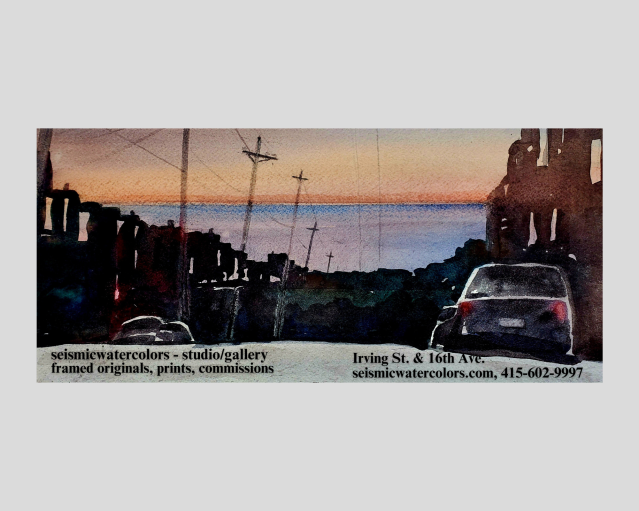Library could become spy hub
by Paul Warfield
More than 10 years ago, the SF Public Library tried to install privacy-threatening radio frequency identification (RFID) tags into all of its books and materials, but was opposed by the Electronic Frontier Foundation (EFF), American Civil Liberties Union of Northern California (ACLU) and Library Users Association, primarily because of the privacy threats the technology poses.
The SF Board of Supervisors refused funding two years in a row. Now the library wants to do it again.
This time, unfortunately, there has been much less discussion than back then, when a special forum was held by the library, and the Library Technology and Privacy Advisory Committee (LTPAC) met multiple times and issued a report that was supposed to include comments by the public.
The comments were solicited and there were many statements of concern – by EFF, ACLU, librarian’s union and others. But, all of those comments were buried in a separate document that was never mentioned in the committee’s report, not even in the table of contents – and subsequently those comments are lost from view.
The RFID technology is supposedly more efficient than current bar code technology that is used for checking books and other materials in and out. But there are many problems, including:
• RFID is a privacy killer. An RFID tag can be read without the knowledge or consent of the person carrying the item that contains the tag. And it can be read through clothing or a closed container, like a purse or briefcase;
• RFID has a huge security hole. The RFID signal can be blocked by inexpensive materials available in most homes and in every supermarket. As a result, a library using RFID could be subject to massive and undetected losses;
• RFID poses potential health risks from the radio frequency radiation used. While harm was not conclusively shown in all studies, the SF Neighborhood Antenna Free Union (SNAFU) opposed its use and recommended use of the city’s precautionary principle: look for alternatives when a questionable new process is proposed, even if there is no absolute proof of the heath or other risks.
The RFID plan continues to be strongly opposed by EFF and the ACLU. In a joint letter sent to city librarian Luis Herrera (now retired) last year, the two groups wrote, “Both EFF and ACLU have opposed, and continue to oppose, the use of RFID technology in libraries because of its very significant privacy and free speech concerns.”
Representatives from the ACLU and EFF noted that they were “extremely surprised that the library is revisiting this issue, particularly in the current political climate.”
“Now is certainly not the time for the library to be adopting RFID technology – a technology that is built to allow the books in our hands and our bags to be monitored and tracked from a distance without us ever knowing,” the groups wrote. “Rather, the library should be taking affirmative steps to further safeguard the privacy and free expression of diverse community members.”
The American Library Association’s Intellectual Freedom Policy makes it clear that patron assurance of confidentiality in what they are researching and reading at the library is key to intellectual freedom – the freedom to think, to read and to research.
RFID should not be used in our public library, regardless of any claims about efficiency. And the efficiency is trivial for patrons: the library estimated a savings of five to eight seconds for each item checked in or out. How did the library come up with its estimates of time savings?
I discovered that the RFID portion of the comparison never used any actual RFID readers or tags; the time was estimated or “simulated” using bar code readers and bar codes.
If you don’t like the feeling you’re being tracked when you’re enjoying something borrowed from the library, contact the Board of Supervisors.
Peter Warfield is a member of the SF Library Users Association.
Categories: Commentary











Peter Warfield,
I need your help regarding a misplaced idea to locate a library on a Green Belt, on a earthquake fault, far away from public transportation, on a slop which is difficult for those ADA individuals and most importantly near dense traffic making it a “attractive nuisance” for children. We spoke with you in the past about this project. You seemed interested in helping then. It is now back in the Planning Department. Wee the story in the Westside Observer:
https://westsideobserver.com/news/rogers.html#dec19
The article was written on December 2019 if you have trouble finding it.
Glenn Rogers
LikeLike